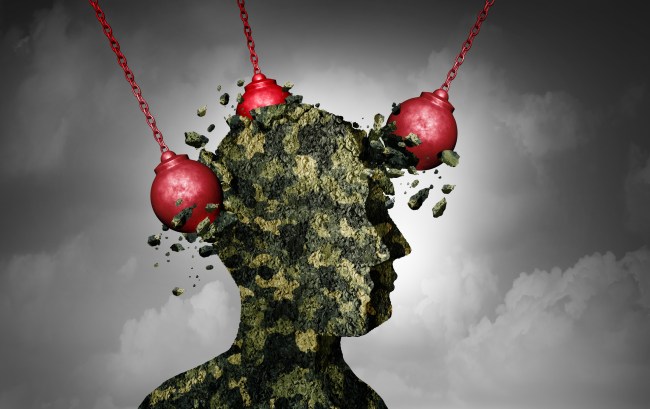
iStockphoto
Post-Traumatic Stress Disorder (PTSD) can be a debilitating condition that is quite familiar to many of whom have experienced significant trauma in their lives. We tend to mostly associate it with those who have been traumatized by military combat. However, PTSD can be found with anyone who has experienced trauma of any kind. For example, being told that you have cancer or other life-threatening medical condition, being involved in a serious vehicle crash, and many other significant life altering events, can create PTSD. For all those with PTSD, the alterations in brain chemistry can make the PTSD patient unstable for a lifetime. How PTSD affects the person is by recall allowing for re-experiencing of traumatic events through memories and nightmares, avoiding certain stresses, and creation of changes in mood and function.
The first line of treatment for those with PTSD is through psychiatric channels, and this includes medications, many of which can have significant side effects. Although not everything is known about PTSD, one of the beliefs about it discusses how those with the condition are unable to properly retrieve memories and process them. This causes extreme amounts of psychological stress. This stress feeds the disorder.
Cannabidiol (CBD) has been shown to have a direct effect on the CB1 receptor, and it just so happens that the endocannabinoid system (ECS or eCB) has an important role in the processing of “aversive memory extinction through the activity of central CB1 receptors.” This means that CBD’s well-known effects on the CB1 receptor help with reducing excessive neuronal activity, thus helping to reduce anxiety and create a calming effect. So, simply put, CBD has been shown to help with the symptoms of PTSD.
The study ‘Cannabidiol in the Treatment of Post-Traumatic Stress Disorder: A Case Series’, by Elms et al, published in the Journal of Alternative and Complementary Medicine in 2018 discusses the impressive effects of CBD on PTSD.
In this study, 10 of 11 people with PTSD had a decrease in symptom severity with CBD supplementation. There were no side effects with CBD and it was tolerated well by those in the study. The CBD was administered in addition to routine psychiatric care. In addition, CBD seemed to have offered relief for those in the study who reported frequent nightmares.
This study only looked at daily CBD use over a period of 8 weeks. The results are amazing considering the endocannabinoid system can take a long period of time to optimize. Although not addressed in this study, we should at least consider the possibility that longer-term usage will yield even better results.
When choosing CBD products, be sure to only select those that are natural/organic, non-GMO, and independent laboratory tested for content.
*****